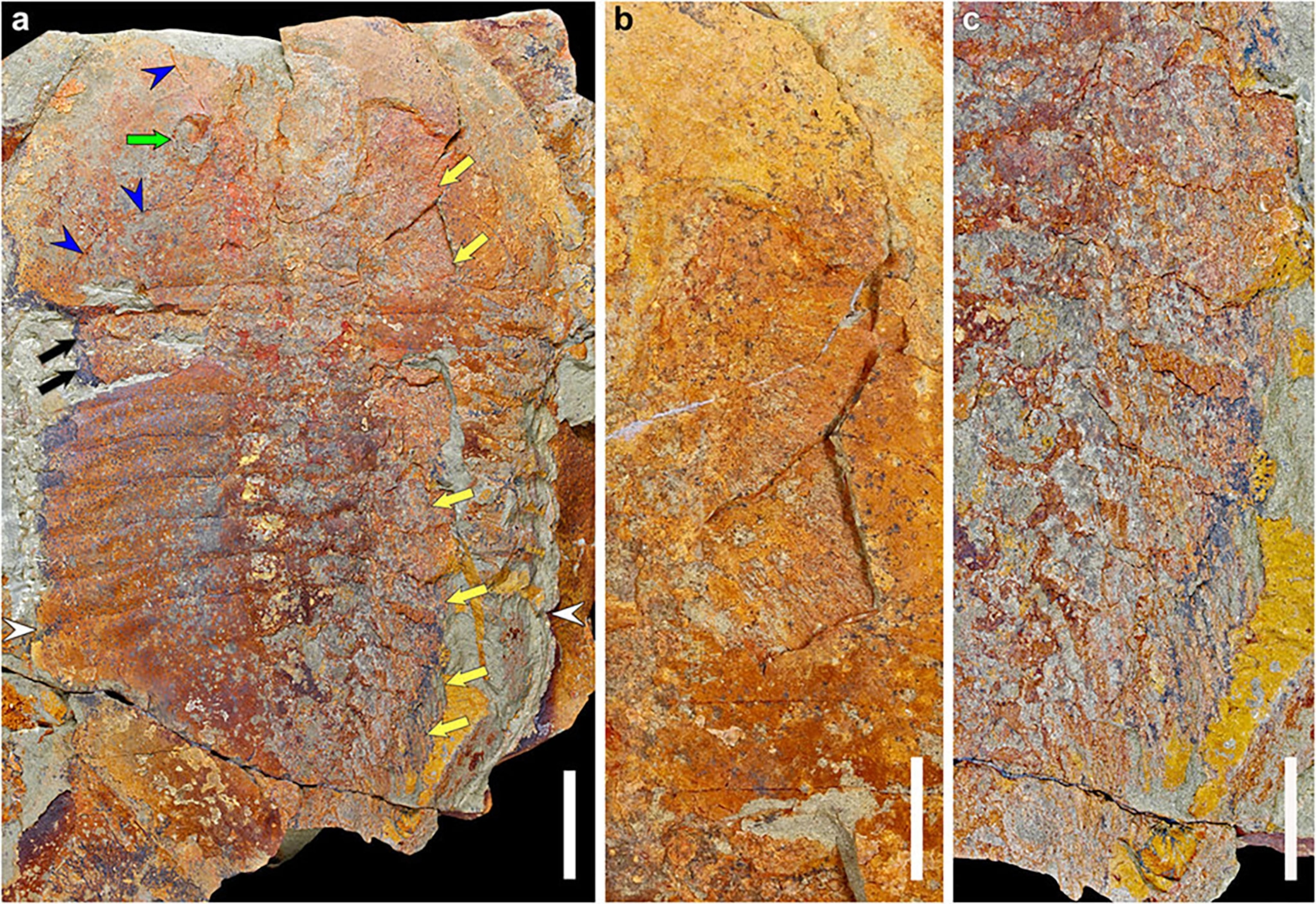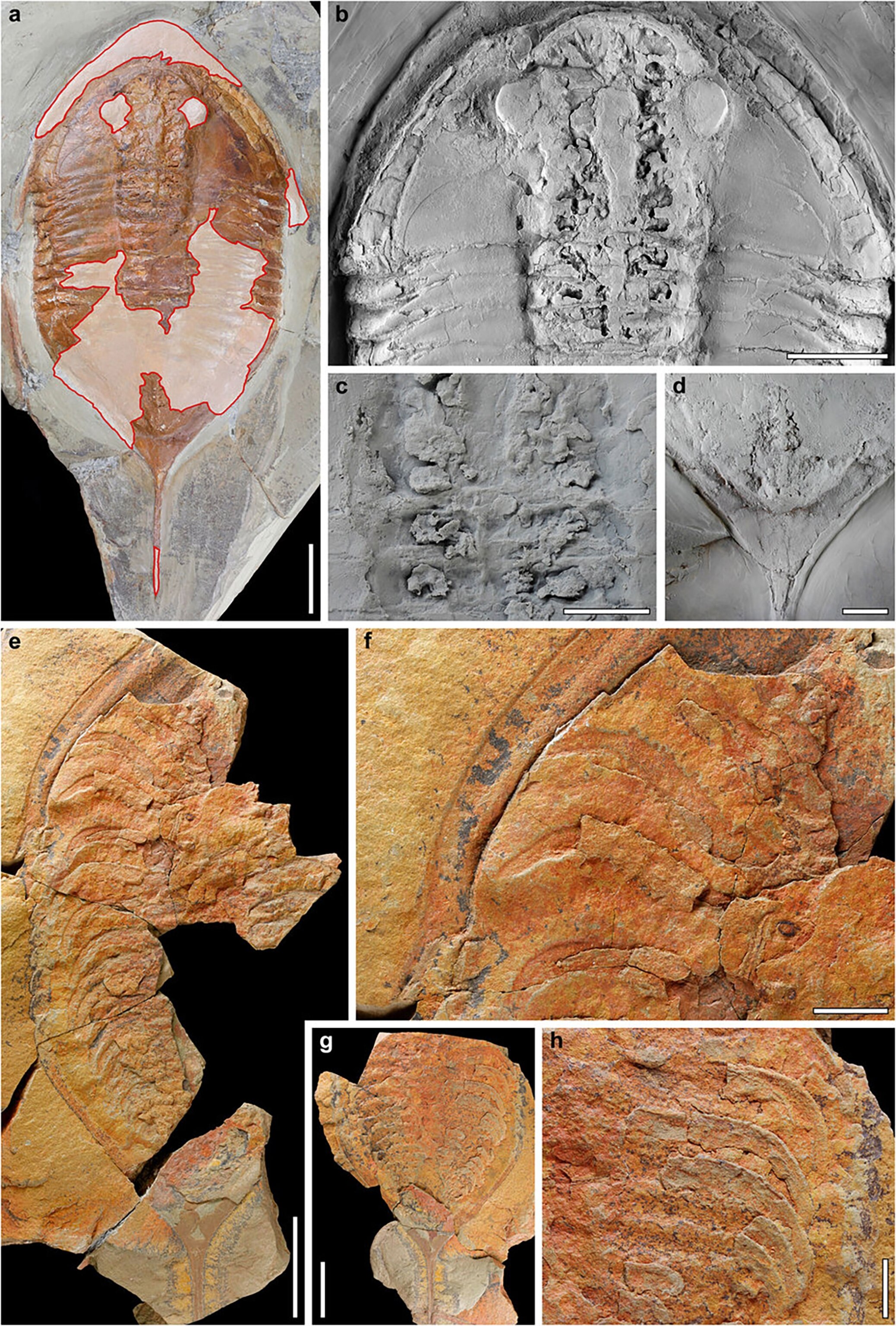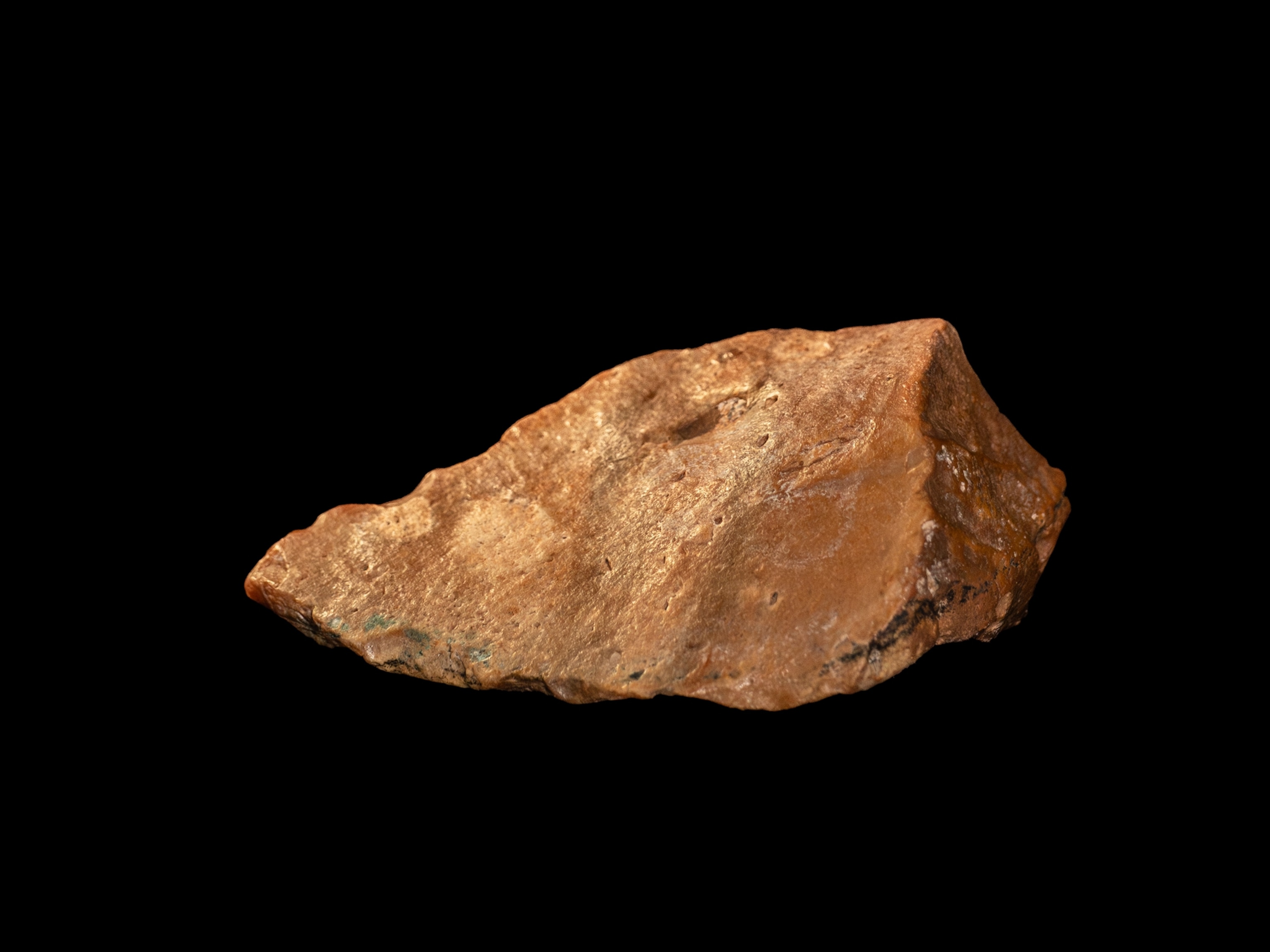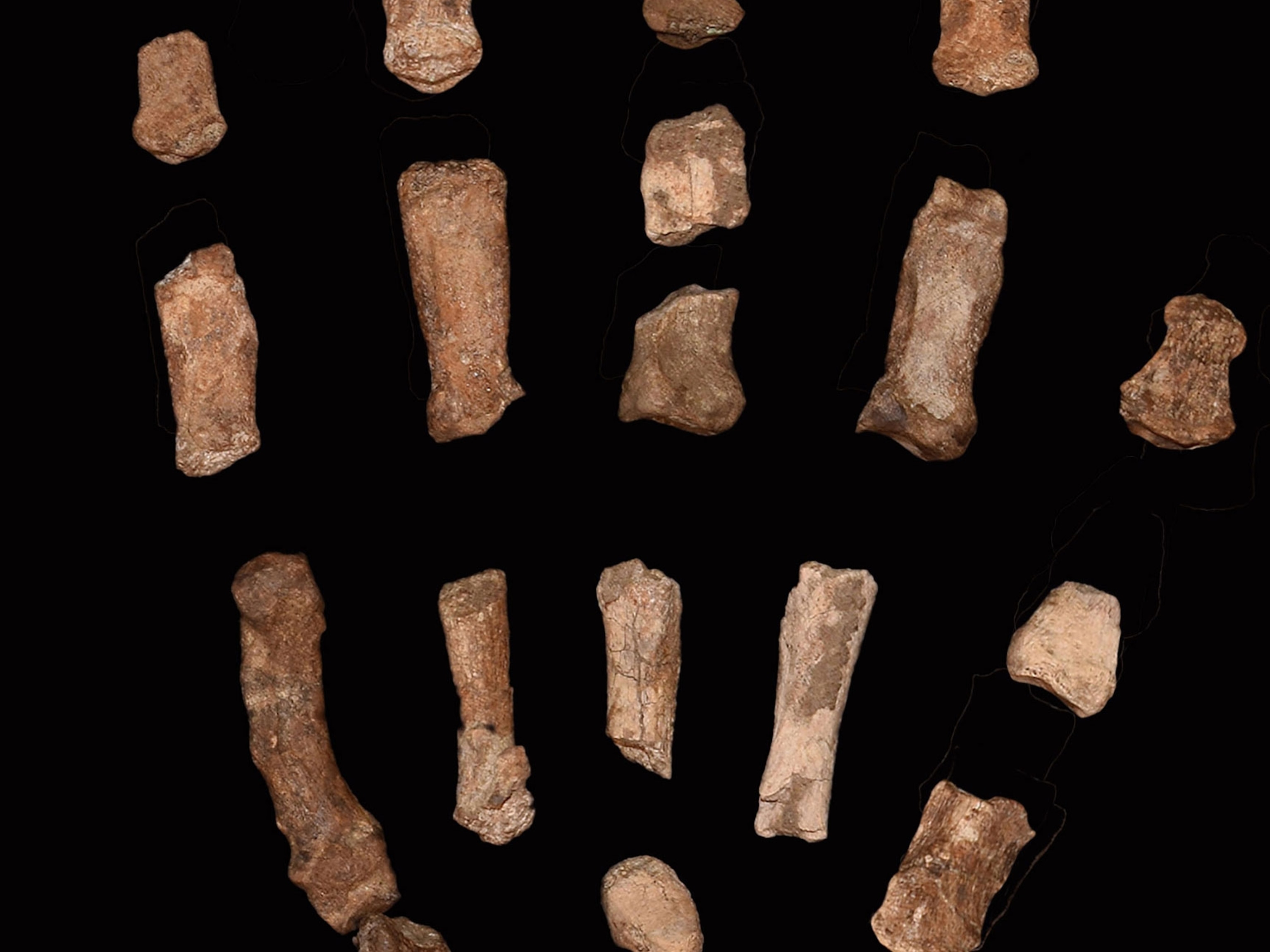
Found: Guts of 470-Million-Year-Old Sea Creature
Spectacular trilobite fossils from Morocco are helping scientists piece together how these insect-like animals moved and ate.
In a rare find, scientists have examined guts, legs, and gills from an animal that was preserved for nearly 500 million years. The ancient soft parts are offering new insights into the behavior of trilobites, the insect-like creatures that ruled Earth’s early seas for hundreds of millions of years.
Paleontologists have identified more than 20,000 species of trilobite, but little is known about exactly how the animals moved around or what and how they ate. That’s because the soft tissues of the undercarriage are usually long gone by the time the harder exoskeletons mineralize into the distinctive alien-looking fossils.
Now, Diego García-Bellido and Juan Carlos Gutiérrez-Marco have gotten a good look at three specimens of a 478-million-year-old trilobite from Morocco known as Megistaspis hammondi, donated by a private collector. They describe the fossils in a paper published in January in Scientific Reports.
The rare, near-complete preservation of these creatures’ legs, digestive systems, and gills allowed the researchers to envision their life history: The marine arthropods would have busily sifted their way through the upper layers of sea sediment, hoovering up soft mud in search of hidden organics and nutrients.
In addition, the scientists found that these trilobites’ digestive systems included a midgut gland, which in modern arthropods is typically found in predators. The glands produce enzymes that help dissolve and digest food. But the animals also had a crop, a pouch normally found in modern sediment feeders where food is stored and processed.
This led the researchers to conclude that though Megistaspis was primarily a sediment feeder, it could also take advantage of meatier meals when it happened across them.
“If a modern arthropod comes across a dead crab, they don’t go ‘yuck!’ and ignore it—they eat it, because they need energy,” says García-Bellido, of the University of Adelaide in Australia. “Like modern arthropods, trilobites were very versatile, and to survive they had to exploit their ecological environment to the best of their advantage.”
Lining Up Clues
The Megistaspis fossils are also helping scientists understand the origins of one of the period’s most common but mysterious markings: strange “footprints” that are common throughout Paleozoic sediments, which date from 540 million to 250 million years ago.
Examining the three nearly foot-long fossils, excavated from the Fezouata formation in Morocco, García-Bellido and Gutiérrez-Marco saw what appeared to be short, stout spines on the trilobites’ legs. A lightbulb went off.
“I said, ‘Where have I seen these marks before?’ And my colleague Juan Carlos, the trace fossil expert, said, ‘Wait, the leg spines could have made the scratch marks of Cruziana rugosa,’” says García-Bellido.
Cruziana are not the remains of an animal, but are fossil evidence of its passage. The strange striations are abundant in rocks from what was once the supercontinent of Gondwana, which split roughly 200 million years ago into the modern continents of Africa and South America, as well as Australia, India, and Antarctica.

“Cruziana fossils are known through most of the Paleozoic, but rugosa in particular coincides in space and time with Megistaspis,” a period that stretched from about 488 million to 443 million years ago, explains García-Bellido. “Sure enough, the spines on those legs actually fit very well with the plowing scratch marks.”
Earlier evidence for trilobites like Megistaspis making Cruziana and other trace fossils was sketchy at best, says Greg Edgecombe, a trilobite expert and researcher at London’s Natural History Museum. Part of the difficulty is that trace fossils and trilobites have usually been found in sediments from vastly different time frames.
“Some leading authorities were even led to question whether traces like Cruziana were in fact made by trilobites, as opposed to some other kind of arthropod,” says Edgecombe. “Here, they’ve assembled a set of traces from Ordovician sediments from different parts of the world, and the traces match the details of [Megistaspis’] ventral anatomy.”
García-Bellido is now continuing his work investigating the dawn of life in 540-million-year-old sediments in Emu Bay, Australia, some of which has been funded by National Geographic grants. He notes that the Megistaspis discoveries should encourage others to look for more trilobite soft parts and other possible matches between leg types and trace fossils.
“There’s a lot of information out there, but we just have to open our minds and say, let’s try to look for it,” he says. “It’s there. If we want to understand the complexities of trilobite life, not only the shapes and sizes but also their behavior and internal structure, it’s worth pursuing.”




